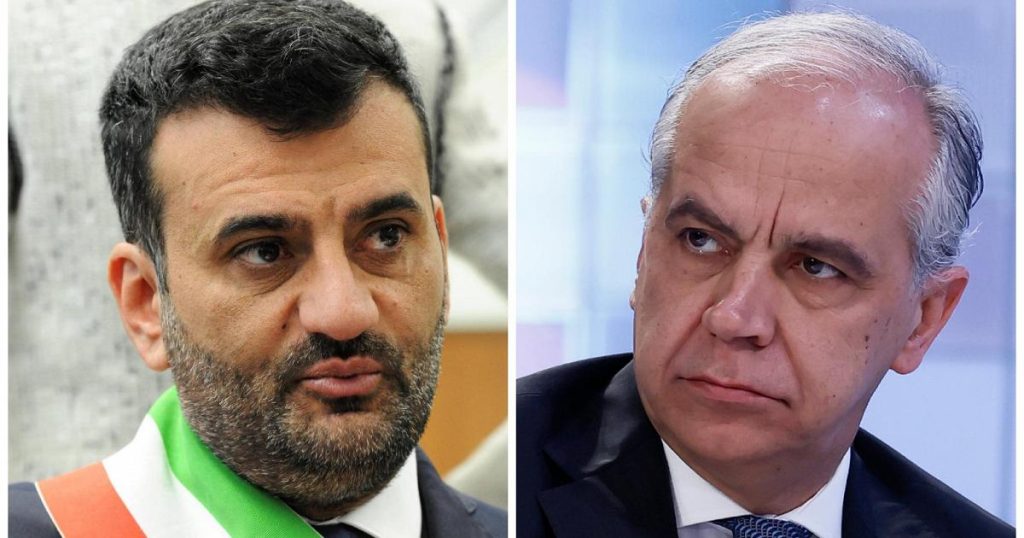The mayor of Bari, Antonio Decaro, shed tears after speaking at a city council meeting attended by citizens who had actively fought against the 14 mafia clans in the area, risking themselves and their loved ones. Decaro described his tears as being linked to people he had helped free from the clutches of loan sharking, who attended the meeting after hearing about it. He emphasized the ongoing battle against the mafia in the city, referring to it as an “act of war” that requires legitimate defense. With only three months until the municipal elections, Decaro accused the center-right of trying to disrupt the campaign to regain control of the city after 20 years of losses, stating that Bari belongs to its citizens and not to outsiders.
The decision to send a commission to Bari was made by the Ministry of the Interior following arrests related to a political-mafia vote-buying scheme uncovered in the 2019 municipal elections. The public transport company Amtab was placed under judicial administration due to mafia infiltration, and an inspection will be conducted at the Prefecture in Bari. Among the 130 people arrested or under house arrest are Carmen Lorusso, a former center-right councilor who switched to Decaro’s majority, and her husband, a former regional councilor. The Minister of the Interior Matteo Piantedosi emphasized that the government is committed to fighting the mafia and not targeting local administrators, offering cooperation with the appointed commissioners. The findings of the commission could lead to the dissolution of the municipality.
Decaro received support from some center-left mayors and politicians, while the Democratic Party leader Elly Schlein criticized the Ministry’s decision as politically motivated and harmful. The Five Star Movement expressed concern over recent arrests and urged against exploiting the situation for political gain. The center-right defended the Minister’s actions, with Forza Italia suggesting that Decaro should appreciate the commission’s intervention if he has nothing to hide. Decaro, who has faced threats from the mafia for years, declared his willingness to give up his security detail if any suspicions of criminal infiltration within the city arise, citing his commitment to confronting the mafia despite personal risks.
In the past, Bari has seen similar cases of arrests related to electoral corruption, highlighting the ongoing issue of mafia influence in local politics. Decaro’s dedication to fighting organized crime was evident as he spoke about confronting the mafia without fear and submitting thousands of pages of evidence to the Prefecture. Despite living under constant police protection for nine years, Decaro remained resolute in his fight for legality and justice, stating that he fears for his family but refuses to back down. The mayor’s actions and statements were met with applause and support from the audience, underscoring the importance of maintaining integrity and transparency in governance to combat mafia infiltration.
The political landscape in Bari and the wider region reflects a complex interplay between criminal elements, electoral dynamics, and the ongoing struggle for clean governance. Decaro’s emotional speech and firm stance against the mafia resonated with many citizens and officials, drawing attention to the deep-rooted issues of corruption and mafia influence that continue to plague the city. As the municipal elections approach, the implications of the recent arrests and investigations on the political landscape remain uncertain, with various parties and factions positioning themselves in response to the unfolding developments. Decaro’s unwavering commitment to exposing and combating mafia infiltration serves as a powerful example of leadership and integrity in the face of adversity, highlighting the importance of collective action to uphold the rule of law and protect democratic values.


